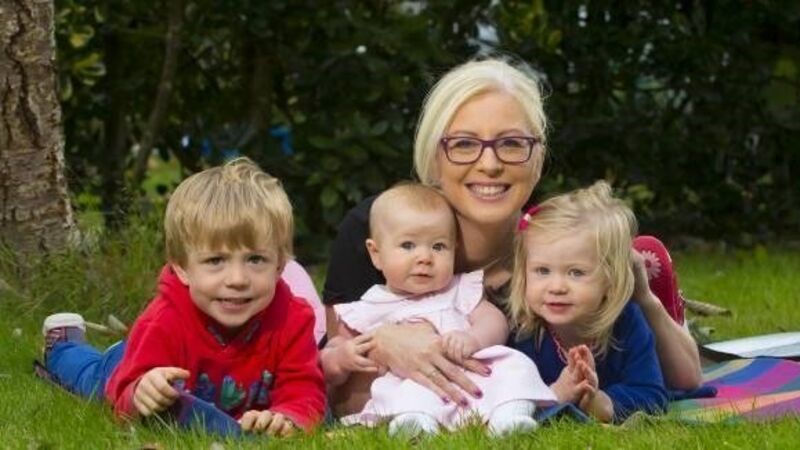On the treble: Operation Transformation's Aoife Hearne on juggling family and career

Trying to be perfect is a pointless pursuit, says dietitian Aoife Hearne, who chats to about the consequences and compromises involved in juggling motherhood with a busy career.
WHEN Aoife Hearne opens the front door of her home in Waterford, my eye is immediately drawn to her t-shirt, emblazoned with the words ‘coffee and concealer’, two things I’d imagine she has needed more than usual lately. The dietitian and expert on RTÉ’s Operation Transformation gave birth to her third child, Zoë, in May. Along with caring for Dylan, 4, and Alva, 2, running her nutrition consultancy business, publishing a book, and her television obligations, life has been hectic, to say the least.











